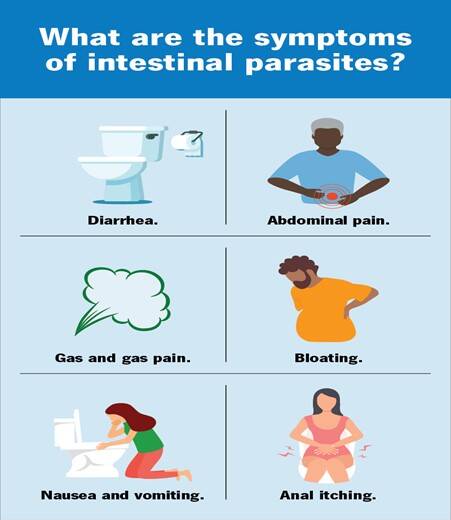Intestinal Worms
Intestinal parasites include worms and one-celled organisms that rely on human hosts (their guts in particular) to hatch, grow and thrive. They spread when an unsuspecting host unknowingly ingests their microscopic eggs.
Overview
Roundworms (with round bodies) and flatworms (with flat bodies). Although they thrive and grow in your body, most helminths can’t reproduce there. Instead, they lay eggs that exit your body in your feces (poop).


What causes intestinal parasitic infections?
You can get intestinal parasitic infections from:
- Consuming contaminated water: Water sources include public and private drinking water sources, pools, rivers and lakes.
- Eating contaminated foods. This includes eating produce washed in contaminated water or grown in contaminated soil. You can get parasites from eating raw or undercooked meats with the parasite.
- Touching your fingers to your mouth. Some parasite eggs can survive on surfaces for a long time. If you touch the surface and then touch your mouth, you can get infected. Depending on the parasite, these surfaces include bed linens, pet fur or even human skin.
- Walking on contaminated soil barefoot. The larvae of some intestinal worms can enter through your skin if you walk barefoot on the soil they’re living in.
Ultrasound imaging of intestinal ascariasis
Adult worms are seen as tubular structures outlined by intestinal fluid. The adult worm is seen as a large, curved echogenic strip with an inner, anechoic, longitudinal canal.
